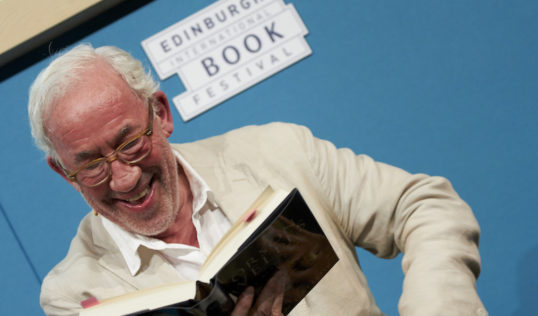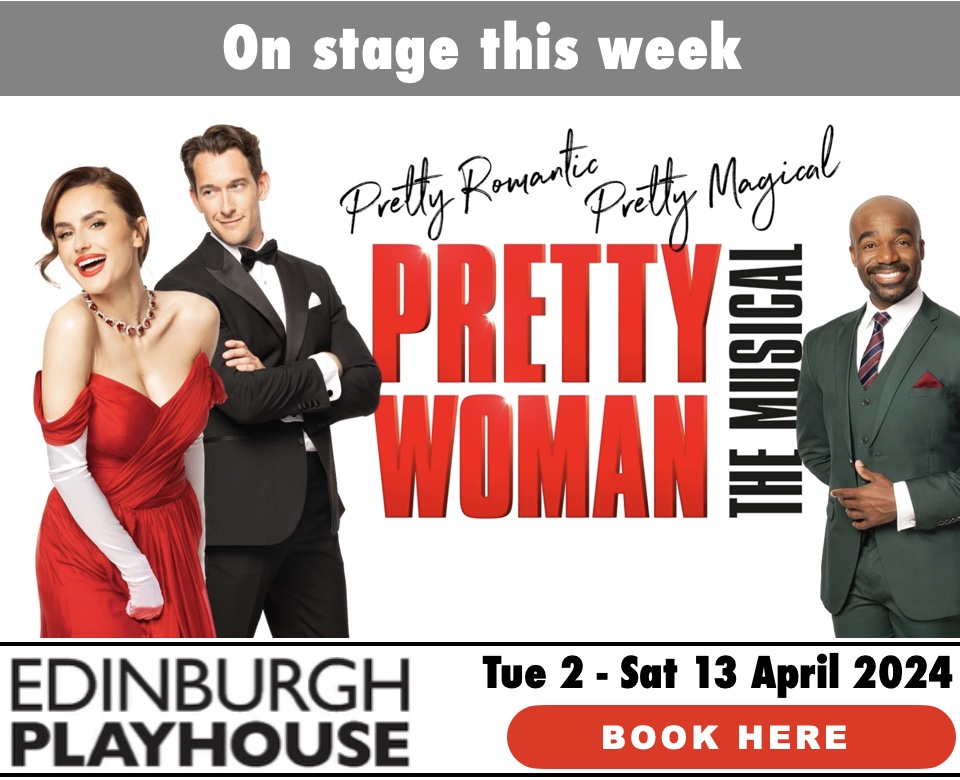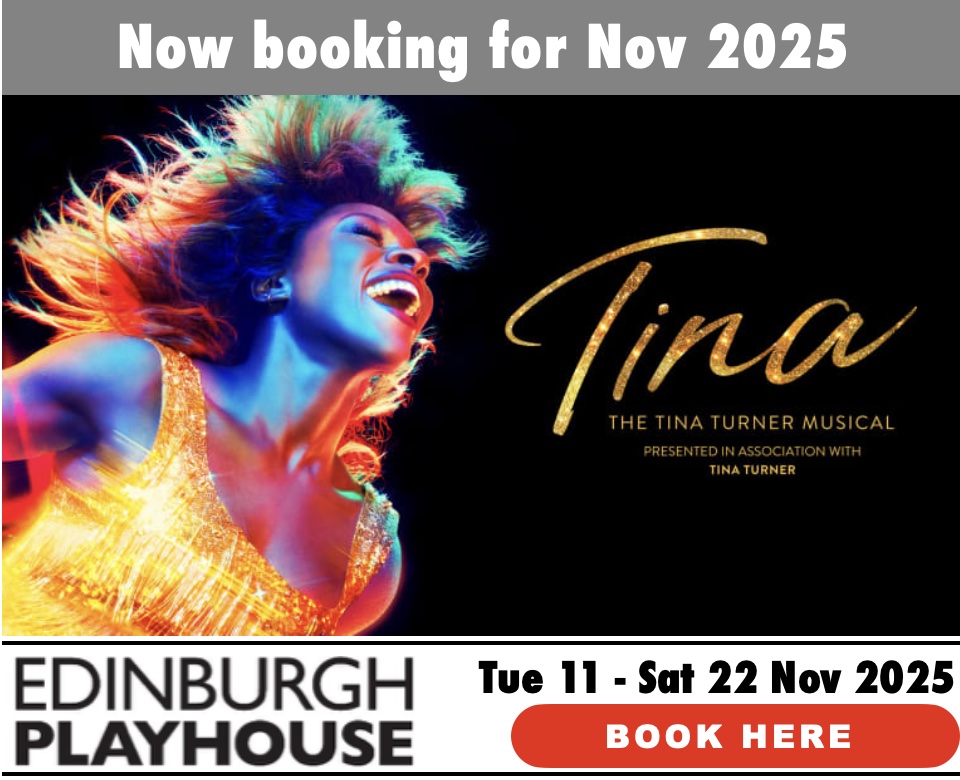Book Fest Round-up
Words from Charlotte Square Gardens
Things theatrical at the Edinburgh International Book Festival
By Hugh Simpson
In recent years the Book Festival has made a definite effort to engage with the more theatrical side of things. This year’s production with Stellar Quines of The View From Castle Rock, while extremely impressive, is much more self-consciously literary and less original than the inventive Grid Iron co-production Letters Home from 2014; however, there are still plenty of events at the festival that occupy an ill-defined and interesting space somewhere between spoken word, theatrical performance and literary readings.
Celebrated figures reading from, and discussing, their books still make up a large proportion of the festival, of course – and when the writer is themselves a performer it adds another layer of expectation. Simon Callow, promoting the latest volume of his Orson Welles biography, gave a bravura display that seemed to be less of a prepared performance and more of a working out of his own issues. Mixed in with some interesting theories about Welles’s relationship to Falstaff and theatrical background were some intriguing observations about his own career, and almost throwaway remarks about art and politics, that begged to be followed up.
That this never happened was partly due to a lack of time. He only began directly addressing the volume he was ostensibly there to discuss in the last five minutes; chair Al Senter’s opening question, designed to provide an introduction, produced a reply fully 45 minutes long.
This was always interesting, but at times the attempts to explain Welles’s odd career trajectory had the air of an early Beckett prose character, earnestly trying to to express something just out of reach. This was very different from the late Beckett evoked by George Craig and Dan Gunn, two editors of the four huge volumes of his letters. Most touching was the hope he expressed at the end of his life that the ‘weakening of his mind would produce the weakening text he had always wanted.’
A complex picture emerged of a private man who was nevertheless extremely sociable, and one who shunned publicity yet always assiduously replied to correspondence. Most tellingly, Gunn revealed that he fully expected, after spending so much time on the project, to end up feeling like ‘kicking’ Beckett, yet still felt warmly towards a man most defined by ‘constant shock at the existence of other people’.
combative chairing
A surprising attitude to Beckett was revealed by Michael Billington, Guardian theatre critic for 45 years. His book of the 101 greatest plays contains All That Fall, but not Godot, which he feels has become a devalued vehicle for comic turns. He admitted he did not see the Lyceum production with Brian Cox and Bill Paterson, when questioned by Joyce McMillan – whose combative chairing of the event contributed greatly to a thoroughly enjoyable event.
Billington’s selection is an unashamedly subjective one, designed to provoke arguments rather than end them, which this erudite and stimulating hour certainly did, splitting the audience right down the middle on the subject of King Lear. Charming and self-aware, Billington was ready to admit that his concentration on the primacy of the playwright, and that so many of his chosen writers were white males, could be seen as old-fashioned and Anglocentric.
No such problems of modernity regarding Beyond The Page, Beyond The Stage, which featured writers who are engaging directly with new technologies. Roger Sutherland, who produces podcasts mixing poetry, storytelling and essays, demonstrated how one of his broadcasts might work in a live setting. Unfortunately, the answer is that it is somewhat awkward. Performance poet Mark Grist makes fascinating use of YouTube; the problems of making money from internet content are at least not new problems for a poet. Michael Livesley, meanwhile, despite his interest in virtual reality, was convinced – as shown in his spirited recreations of Vivian Stanshall’s mighty Sir Henry At Rawlinson End – that human beings are too fond of communing with each other for any kind of technology to ever fully replace the live environment.
gloriously uncategorisable
This was amply demonstrated in Wi The Haill Voice, where Tam Dean Burn performed Edwin Morgan’s Scots translations of Vladimir Mayakovsky, backed by improvising musicians Ferlie Leed. This was a gloriously uncategorisable tribute to two polymathic creators, apparently creating equal amounts of delight and bemusement – frequently in the same person.
Burn in particular was a joy, his exaggerated half-singing, half-declaiming and emotive delivery rendering the most opaque poems at least half-comprehensible. Some audience members seemed to find a barrier to their understanding, but like much music, this was better to be experienced and felt than understood. At any rate, this was the kind of wilfully and beautifully perverse art, wholly Scottish yet wholly international, that seems to be in short supply at all of the Festivals these days. Congratulations to the Book Festival for staging it, and for their continued commitment to the memory of Edwin Morgan.
The Book Festival continues until Monday 29 August.
A listing of theatre-related events at the Book Festival is here:
Website: https://www.edbookfest.co.uk


















